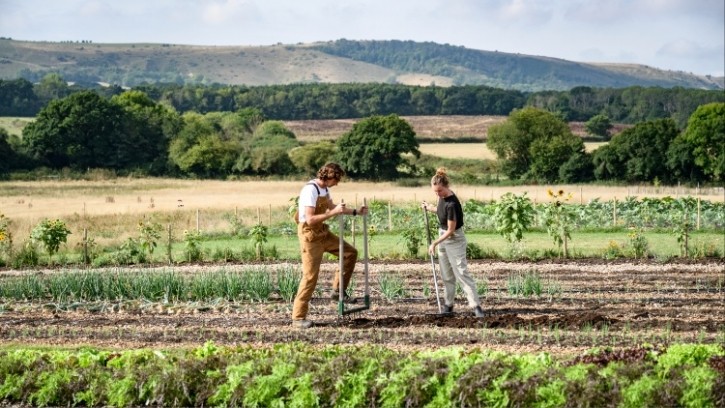News
How the Mars and Kellanova merger can support regenerative agriculture

On 14 August 2024, it was announced that Mars had reached an agreement to acquire leading snacking brand Kellanova in a deal worth £28bn.
The deal had been rumoured for weeks in advance and is anticipated to close in the first half of 2025, provided it does not face pushback from regulators in the US.
A spin off from Kellogg’s, Kellanova owns two billion-dollar snacking brands in Pringles and Cheez-It, while it also remains responsible for cereal brands outside the US such as Corn Flakes and Crunchy Nut.
In the words of Kellanova CEO Steve Cahillane, the deal represents a “truly historic combination” with the potential to cause major upheaval in the global snacking market.
While fellow snacking manufacturers will certainly be keeping an eye on how this merger will impact pricing, product innovation and sales, the team at CIBO Technologies is primarily interested in its effect on regenerative agriculture and sustainability.
Founded in 2015, CIBO is an advanced software platform company that helps businesses scale up their grower-focused initiatives and deliver on climate and nature commitments.
Ryan arrived as chief executive in January 2019 and during that time has helped deliver regenerative agriculture initiatives for numerous clients in the food and drink industry, in addition to projects aimed at reducing supply chain emissions.
Delivering a sustainable future
Asked how he reacted to the deal being announced, Ryan told Food Manufacture: “Reading the quotes it seems that sustainability was one of the drivers in doing this deal, which is encouraging.
“Already, Mars has made a direct commitment to invest $1bn over the next three years in reducing supply chain emissions, while Kellanova employs a continuous improvement philosophy in working with its suppliers.”
Mars has also committed to incorporating Kellanova into its existing plans, which Ryan hopes will help create a “unified force”.
“One larger sustainability programme is easier to enact due to the infrastructure and reporting data they can pull together,” he added.
“The 44% premium that Mars paid gives me hope that this was seen as a strategic acquisition, aimed at combining the assets of both firms in order to deliver on their shared goals.”
When it comes to delivering net zero, Ryan explained that major food firms need to act as leaders in the sector. This not only involves sharing best practices but also using their influence with standards bodies and governments to shape policy and statutory targets.
“While carbon capture technology and carbon offset programmes exist, the primary focus of the food industry needs to be on taking emission out of their supply chains,” he said.
“Scope 3 represents the majority of emissions for most companies, so while adopting green energy sources is a positive step, the impact is limited without looking at how their suppliers are operating.”
Supply chain resilience
While emission reductions are undoubtedly important, Ryan said that food companies also need to focus on making land more resilient as volatile weather becomes commonplace.
For example, Mars sources materials from approximately 500,000 smallholder farms worldwide, but unless that land remains farmable and farming is seen as profitable, that supply chain will come under threat.
“Farmers and growers need support to make the switch to regenerative agriculture,” Ryan explained.
“Making the switch to sourcing low carbon suppliers is a good start, but the bigger impact will come from promoting an industry-wide transition.”
Ryan acknowledged that getting farmers to adopt more sustainable practices has been a challenge. Until now, regenerative agriculture has been employed on a fairly small scale and there is very little peer-to-peer discussion of its benefits.
“Farmers have been operating a certain way for a long time and they are risk averse, especially when moving to new methods that cost money and even lead to short term yield reductions,” he continued.
“Therefore, they need both financial backing and technical and agronomic assistance to kick off that transition. And even then, the process takes time and requires patience.”
In order to get more farmers to consider the switch, CIBO has encouraged the combined use of private finance and public grants that are designed to incentivise the use of these innovative practices.
“We also need to help farmers understand that by embracing new ideas now, their business will become more profitable over time,” Ryan added.
“Education and support from the likes of Mars and Kellanova can therefore play a huge role. If they work collectively and deliver on some of their prior commitments, they can trigger a sea change for supply chains in the US and around the world.
“I know work is already being done, but in order to meet long term goals we need to see action scaled up fast.”
In other news, the Competition and Markets Authority has launched an inquiry into the proposed acquisition of two ForFarmers owned feed mills by Boparan Private Office.
















